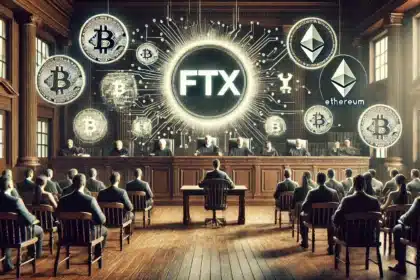The emergence of Bitcoin and Ethereum exchange-traded funds (ETFs) presents a new pathway for traditional investors looking to dive into the digital asset realm. These financial products simplify access to cryptocurrencies, yet they also raise critical questions about the essence and core principles of the crypto movement.

In a recent discussion, Rob Nelson, anchor at Roundtable, and Chris Sullivan, Co-Founder and Portfolio Manager at Hyperion Decimus, explored the varied consequences of crypto ETFs on the market. Their conversation highlighted both the benefits and potential pitfalls associated with these investment tools.
Nelson opened the dialogue by emphasizing the simplicity and convenience that crypto ETFs offer. He stated, “ETFs are a very easy way for somebody who owns equities to get Bitcoin.” He acknowledged the influence of major financial firms like BlackRock but admitted that these ETFs play a significant role in broadening access to cryptocurrencies.
Contrastingly, Chris Sullivan highlighted the necessity of understanding the mechanisms behind ETFs. He noted that not all crypto ETFs genuinely represent the assets they purport to track. Sullivan stressed, “I want to invest in indexes that are actually the constituent representative portions of shares,” advocating for transparency and accurate representation in financial products.
Crypto ETFs: Diverging Views
Sullivan’s primary concern with crypto ETFs revolves around the concept of self-sovereignty for investors. He emphasized that owning an ETF is not equivalent to owning the underlying asset. Drawing a historical parallel, Sullivan remarked, “Forget that you’re not getting your own self-sovereignty with owning Bitcoin yourself, but you actually don’t even own the shares of the ETF.” This highlights a significant disconnect between investors and the actual assets they intend to hold.

Nelson, while recognizing the educational curve involved in direct crypto investments, questioned its practicality for the average person. He observed, “Most people aren’t buying it because it represents freedom. Most people are buying it because they heard it’s a good investment.” This sentiment underscores a broader trend where ease of use often overshadows the deeper understanding of cryptocurrencies.
Despite their differing perspectives on the educational and accessibility aspects of crypto investing, both Nelson and Sullivan agreed that crypto ETFs could enhance market liquidity and provide wider exposure to Bitcoin and Ethereum. However, Sullivan maintained that for those pursuing true self-sovereignty and independence from traditional currencies, direct ownership of assets like Bitcoin and gold remains the preferable route. He concluded, “If you want the real deal, you got to get the real deal.”
Crypto ETFs: Broader Market Implications
As the market for crypto ETFs grows, investors must balance the convenience they offer against the principles of self-sovereignty and direct ownership. For many, the appeal of easily tradable assets and increased liquidity justifies the use of ETFs. For others, the foundational values of decentralization and autonomy inherent in the crypto movement are non-negotiable.
The introduction of crypto ETFs indeed marks a significant moment in the cryptocurrency landscape. It represents a bridge between the traditional financial system and the innovative world of digital assets, potentially attracting a new wave of investors who might otherwise be hesitant to engage directly with cryptocurrencies.

However, as this bridge is constructed, it is essential to remember the principles that underpin the creation of cryptocurrencies. The debate between convenience and true ownership is not just financial but also philosophical, reflecting differing visions for the future of the cryptocurrency movement.
In conclusion, the advent of crypto ETFs brings both opportunities and challenges. While they provide a more accessible path for investors to interact with digital assets, the core values of self-sovereignty and direct ownership should not be overlooked. As Nelson and Sullivan’s discussion highlights, the crypto community must navigate this evolving landscape carefully, ensuring that the principles of decentralization and autonomy are preserved even as the market expands. The future of crypto ETFs will likely hinge on achieving a balance that satisfies both traditional investors and cryptocurrency purists alike.
For more information, news, and updates on the cryptocurrency industry, stay tuned to TheBITJournal.





























